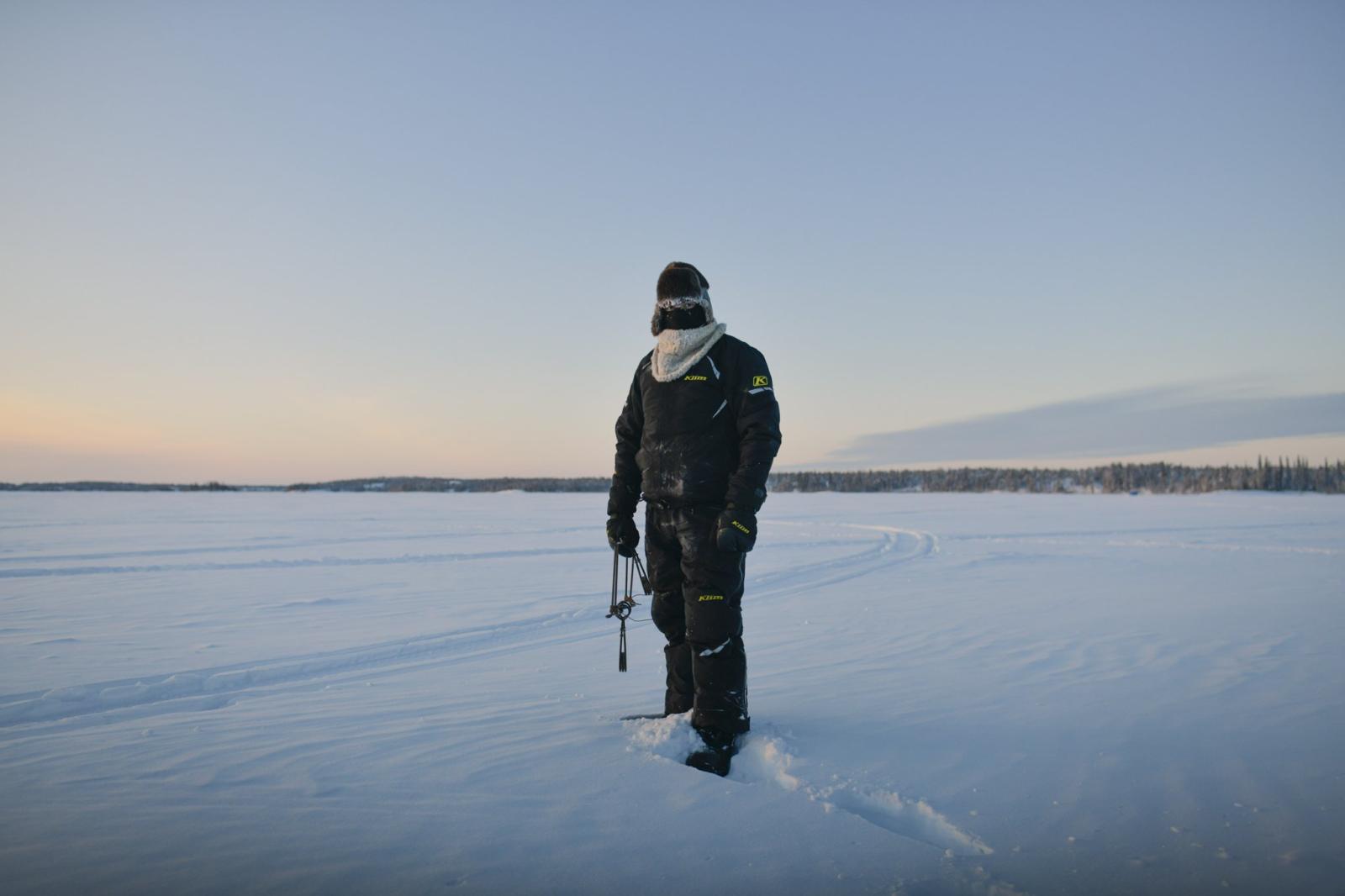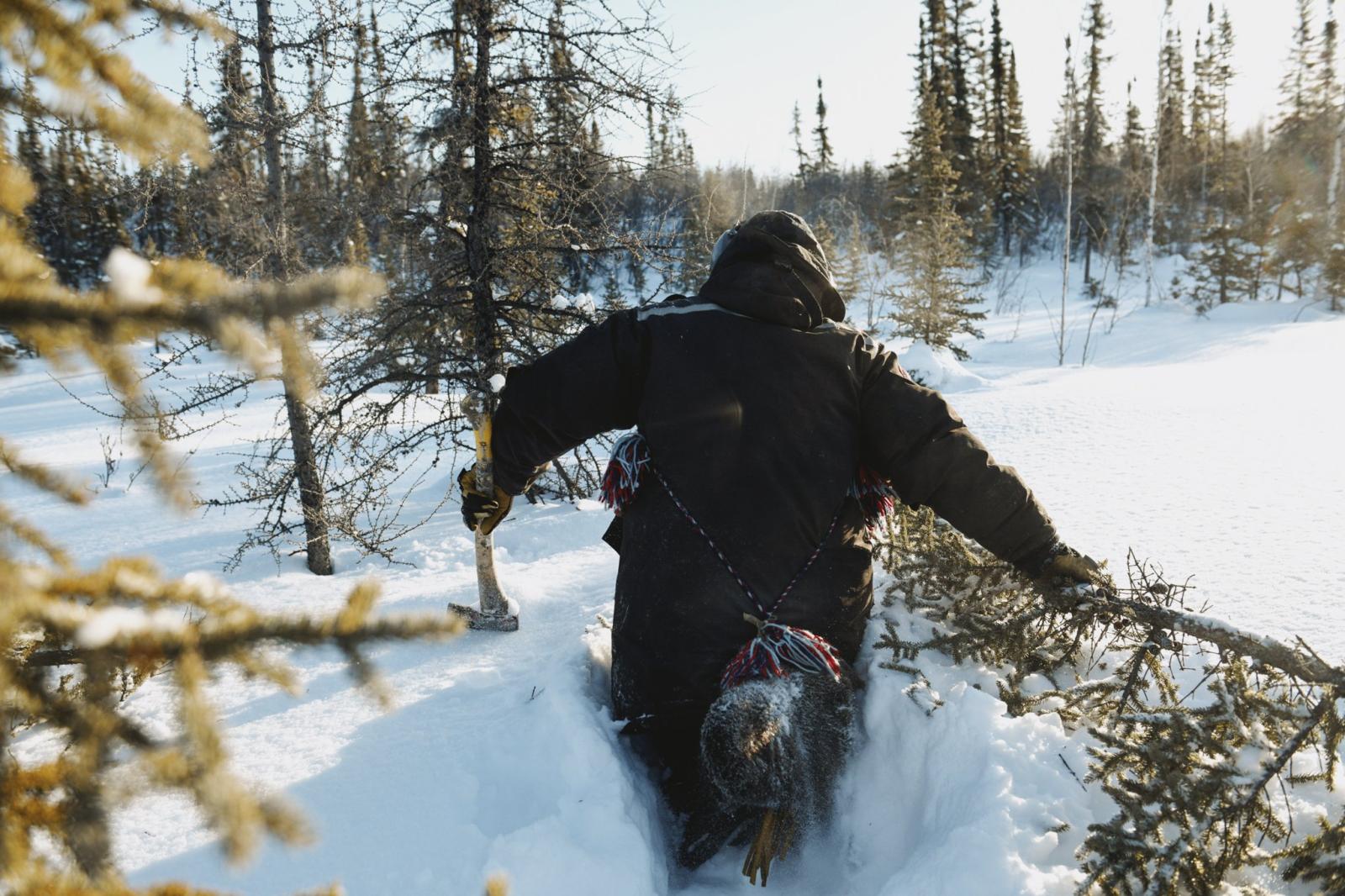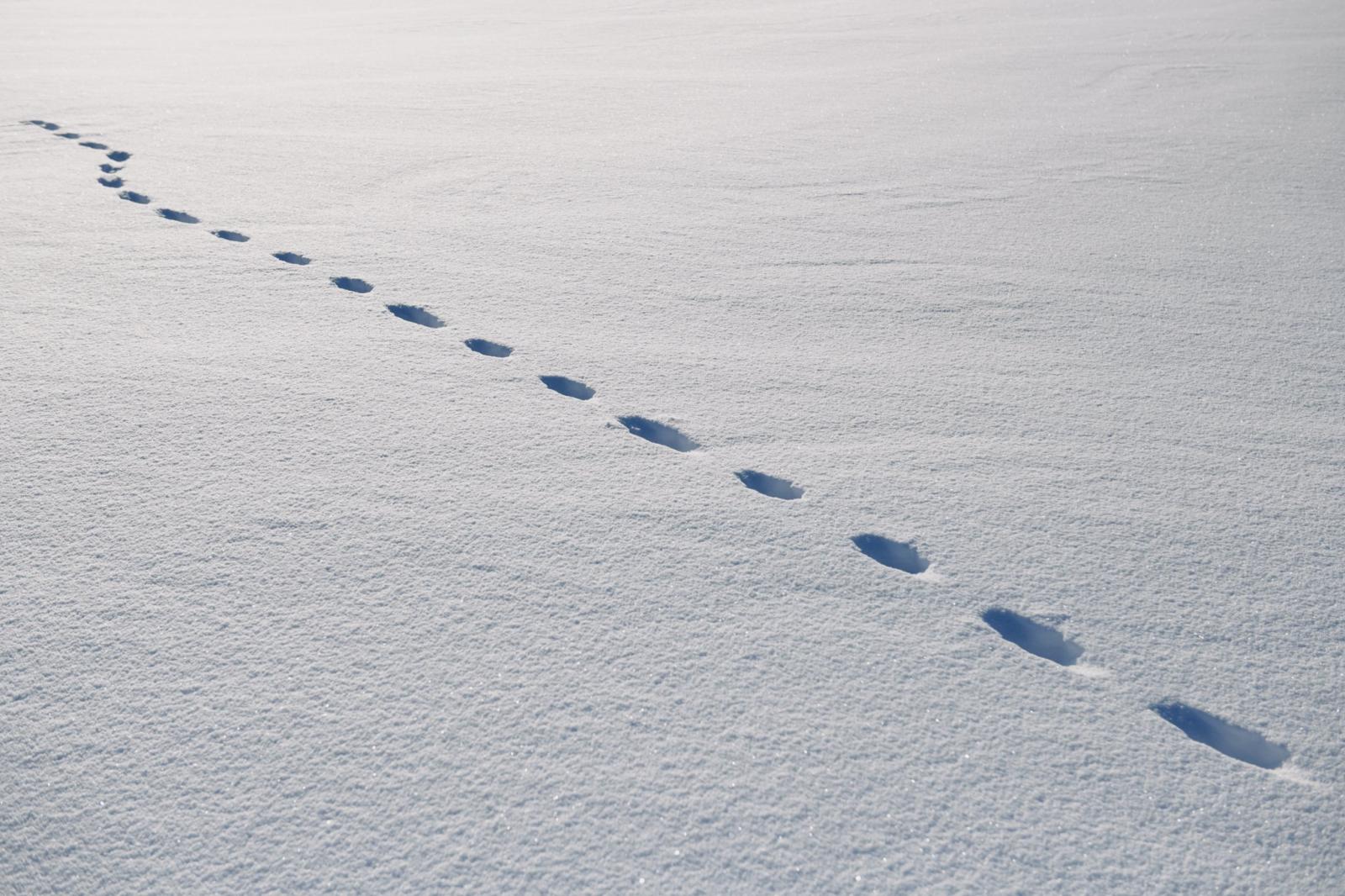20 of 21
© 2025 Pat Kane
Robert Grandjambe and Chloe Dragon Smith in Yellowknife, Northwest Territories. The couple are full-time trappers and harvesters who live at an off-grid cabin south of Fort Smith, Northwest Territories. Dragon Smith, who is of Indigenous Dene/Métis and settler Canadian German/French ancestry, and Grandjambe, who is of Indigenous Cree/Dene and settler Canadian German ancestry, are among the few full-time trappers left in Northern Canada. While some of their income comes from trapping and fur sales, they are also educators who share about the history of trapping in Canada, and how colonization has impacted people's relationships with the land, including wildlife. "Indigenous lands and societies were colonized by European settlers, who see the land as separate from people," says Grandjambe. "[Indigenous people] were moved off the land onto reservations and into urban centres. Our people lost that connection with the land, including wildlife – these are things that shape our identity and worldviews. We are not separate from the land, we are part of it and we all rely on this context and connection to exist”, adds Dragon Smith. “When we talk about land, we include peoples, cultures, languages, and knowledge systems. All that we are and what we have comes from land, and trapping is one way we respect that."




















